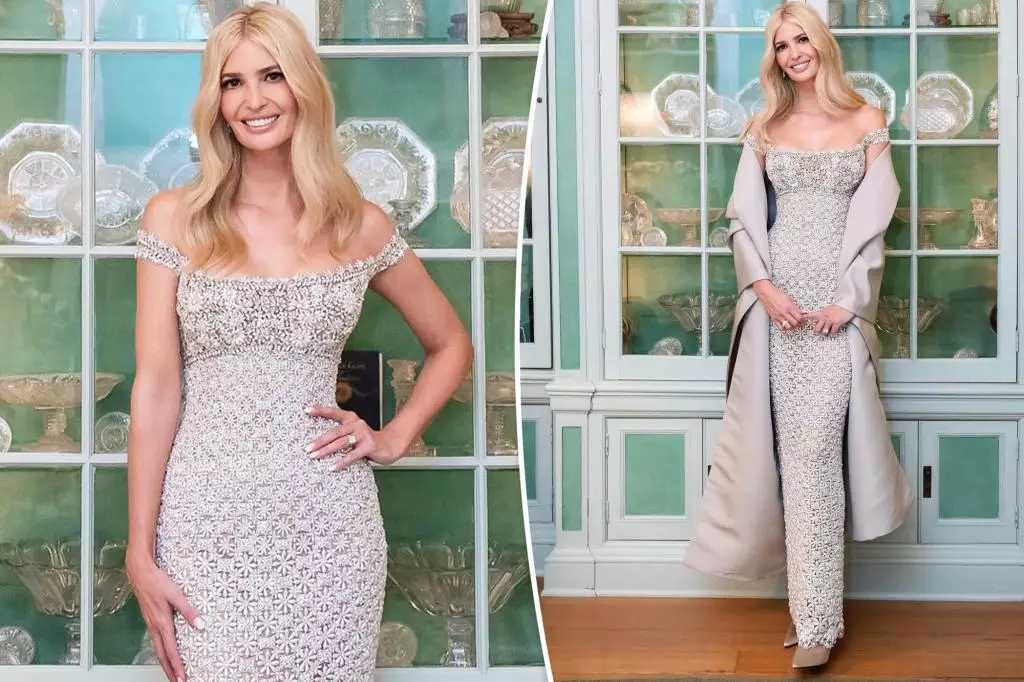The choice of attire can often serve as a reflection of our society’s complex intersections between politics, propriety, and personal identity. Recently, Ivanka Trump’s selection of a custom Oscar de la Renta gown for a pre-inauguration event ignited a wave of criticism on social media, demonstrating just how entangled these elements can be. The dress in question—an off-shoulder gown adorned with crystal and pearl floral embroidery—was intended to make a statement on a celebratory occasion. However, it became the catalyst for a larger discussion regarding the fashion industry’s complicity in political narratives.
Upon sharing images of the gown on Oscar de la Renta’s official Instagram account, the brand encountered significant backlash. Many users urged the designer to reconsider their association with Trump, employing hashtags of disapproval and even threatening to boycott the brand altogether. Comments ranged from straightforward dissatisfaction to more inflammatory remarks connecting the situation to historical atrocities. Such reactions reveal an increasingly polarized societal landscape, where fashion choices are scrutinized under the lens of moral accountability.
While some commentators dismissed the choice of gown as an endorsement of Trump’s political lineage, others took a more aesthetic approach, praising the elegance of the attire. Prominent figures, including Lauren Sánchez, lauded the dress as “beyond magic,” highlighting a split between aesthetic appreciation and political alignment. This duality encapsulates the challenges faced by luxury brands aiming to stay relevant in politically charged environments.
The backlash against Oscar de la Renta can be contextualized within a broader theme that involves brands and their celebrity associations. The wealth and influence of political


Leave a Reply